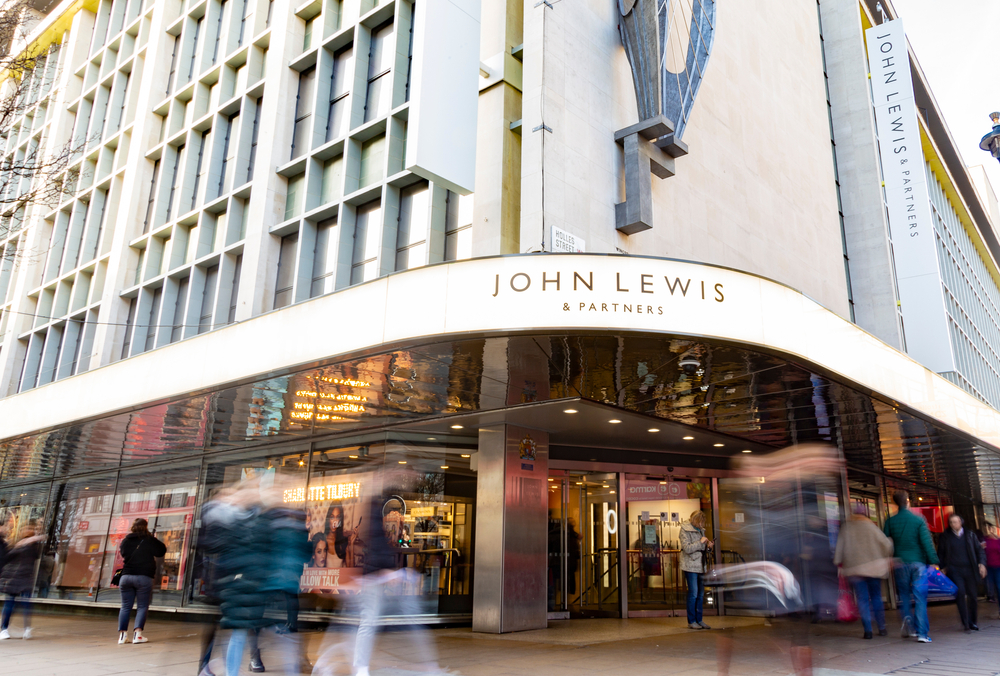As retailers attempt to navigate through the latest post-lockdown phase of the Covid-19 pandemic, they face a new hurdle: a lack of shop floor workers.
According to the ONS, vacancies advertised across the UK rose by 88,000 in April, hitting a post-pandemic high of 747,000 ahead of the reopening of non-essential shops and outdoor hospitality in England and Wales on April 12. This suggests the retail industry is scurrying to hire shop floor staff at the fastest rate in years.
Fashion retailers are among the companies hit the hardest by the pandemic and the lockdowns that ensued, followed by smaller retailers that employ up to 1000 staff. One only has to look at the number of CVAs and administrations since March last year – when the pandemic placed the UK and much of the world in crisis – to see the hundreds of store closures and thousands of job cuts the retail industry has endured.

Reasons as to why retail employment levels remain low may vary from potential workers being unvaccinated to being working parents with a lack of access to child care. Many others may be hesitant to return to the front line after a year of lockdowns and tiered restrictions.
Other reasons include complications around immigration laws arising from Brexit, with discount chain B&M and major grocers currently struggling with a shortage of HGV drivers.
According to a survey of 250 industry executives by Fourth and Censuswide in April, there is estimated to be a 70,000 shortfall of lorry drivers, principally fuelled by EU workers leaving the UK. More than two-fifths (42 per cent) of smaller retailers have said that Brexit has made hiring harder, compared to more than a third (35 per cent) of larger retailers with over 5000 employees.
Understandably, acceleration in the number of job cuts announced since the pandemic started, which has led to a climate of uncertainty for retail, may be playing a role in Brits’ cautiousness in applying for retail jobs.
However, many retailers have launched new employee initiatives to beef up their employment numbers while also improvement staff retainment.
Louis Vuitton parent company LVMH launched an employee assistance programme earlier this week for its 150,000 employees worldwide. The LVMH Heart Fund, which has an initial allocation of £30 million and offers a free, anonymous and confidential support hotline, will be open to employees across 70 countries. The programme has been set up to help employees deal with personal situations as well as day-to-day issues.
“Workplace wellbeing has become increasingly important since the pandemic”
Meanwhile, Tesco recently joined the call for legislation to protect shopworkers against increased incidents of “abuse, threats and violence”.
This came after a Home Affairs Committee survey of 12,000 retail staff found that two-thirds of shopworkers who reported incidents of abuse or violence suggested that no help was given to them after receiving an initial response from their employer or the police. In fact only one in five shopworkers who reported incidents were satisfied with how the police or their employer responded.
“Workplace wellbeing has become increasingly important since the pandemic,” RetailTrust chief executive Chris Brook-Carter told Retail Gazette.
“We’ve seen rates of mental ill health rise and a dramatic increase in the number of incidences of verbal, violent and racial attacks on store staff.
“Workers want to be reassured that employers prioritise their physical, mental and emotional wellbeing so it’s a must for any business looking to attract new talent, especially in retail, to make these provisions.
“There are still so many fantastic opportunities for anyone looking to take on a new role and build a career in retail but there is also some work to do in improving its reputation among new employees, partly as a result of much the uncertainty in the sector over the last decade and in particular since the start of the pandemic.”
RetailTrust said it spoke to HR directors and chief people officers at more than 20 big name retailers for its new retail health report, which looks at how the industry can better support the wellbeing of its workers.
“If there’s one thing the pandemic has shown, it’s that a much more human way of leading is needed and wanted, and we would encourage retailers to put this in to practice by developing mental health at work plans with a real measurable impact on staff wellbeing,” Brook-Carter said.
“It is clear that the retail sector now has a vital role to play in building hope, health and happiness as we move out of this crisis and businesses who step up now will be rewarded with healthier and happier workers, a positive culture and ultimately, business growth.”
Meanwhile, Tesco recently confirmed a 2.7 per cent pay rise for staff paid hourly rates, taking their wage from £9.30 to £9.55 per hour.
John Lewis Partnership also recently announced the introduction of six months of equal parenthood paid leave for any staff member, in what is a UK retail first. The parent company of John Lewis and Waitrose was also offering any staff member two weeks of paid leave if they experience the loss of a pregnancy.
These commitments, alongside the start of a pilot programme to provide career help for young people leaving the care system, are part of a new package of support for staff across the partnership. They also form part of John Lewis Partnership’s wider plans to become the “UK’s most inclusive business” for both staff and customers.
“Retail workers are looking for recognition of their efforts over the past year”
Martyn Jones, chief commercial officer at retail communication service VoCoVo, said it was important to offer incentives such as mental health support, wellbeing packages, and additional holiday days.
“While incentives can be an effective way to entice potential employees, there is more to it than just that,” he said.
“Retail workers are looking for recognition of their efforts over the past year and beyond, and organisations must all recognise the generational changes in employee attitudes.
“For many, the hours they work are no longer measured just in how much they are paid, but instead they now want access to other perks too – something that should be factored in when thinking about building out an attractive employee benefit package.”
Samantha Silva, head of retail EMEA at recruitment agency Quest Search & Selection, argued that retailers should offer incentives such as learning and training for new skills, even if they focus around ecommerce or wellbeing.
“I have seen businesses have incentives that for people who are still in place in six months’ time, that they will be offered some sort of bonus during the Christmas period,” she told Retail Gazette.
“I have seen the introduction of wellness days and CSR days that people can get extra days off.”
Silva added there needed to be less zero-hour contracts and more consistent hours.
“People are engaged by things such as clothing allowances – if in fashion – or travel loans or assistance as a number of office based people are still working from home and would not have this expenditure,” she said.
The pandemic has lead to the growth in ecommerce and contactless collections, which arguably means retailers may need to shift their focus on a huge recruitment drive in delivery, fulfilment and logistics jobs.
What remains clear is that Covid-19 has accelerated a mass shift towards online shopping and that preference is here to stay.
If employers are looking to attract new workers, now is the time to offer training and development, encourage up-skilling, or allow employees to further their knowledge across a wide range of areas.
Click here to sign up to Retail Gazette‘s free daily email newsletter


















